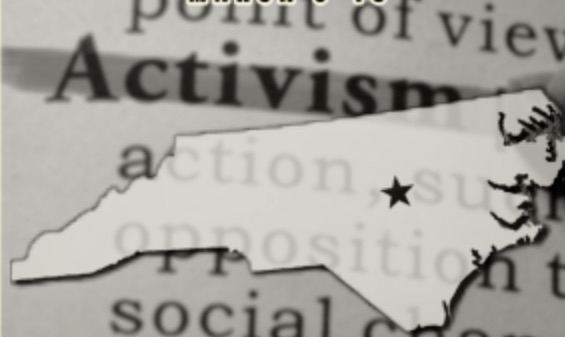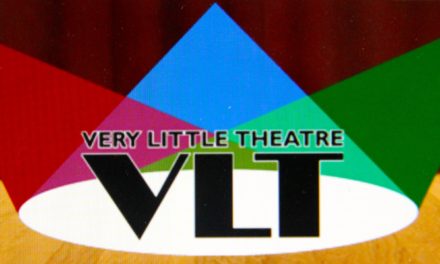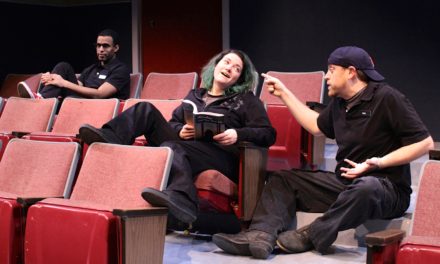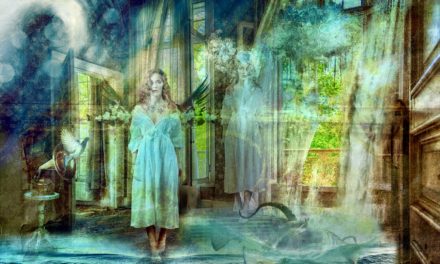By Jennifer Appleby Chu
The scene is Durham, North Carolina, 1971. The players are a civil rights advocate, a Ku Klux Klan officer, and a mediator with one hell of a plan: to make them work together. It sounds too outrageous to believe, which of course means it’s a true story. You can see it playing now at the University of Oregon’s Hope Theatre, dramatized as Best of Enemies by Mark St. Germain and directed by Stanley Coleman.
When community organizer Bill Riddick is sent to rigidly segregated Durham to start conversations about school integration, he realizes he has a very steep uphill battle ahead. Unconventional tactics may be needed. You know what they say about desperate times.
Still, everyone is shocked by his choice of facilitators for the meetings – Ann Atwater, local Black activist, and C.P. Ellis, Durham’s most prominent Klansman. At first, they can barely stand to be in the same room together. She hates him because he threatens her community’s safety, he hates her simply because she is Black.
And yet, they make progress by inches. How? By learning to see each other as whole people, and realizing that they actually care about the same fundamental things. Security for their struggling families. Respect from their neighbors. Opportunities for their children.
It’s not an easy process for either of them, Atwater especially; the oppressed are always expected to forgive first and compromise with their oppressors, and she is tired of being conciliatory to racists. Still, at Riddick’s urging, they stick it out for the sake of the kids. The results are transformational, especially for Ellis, who examines his beliefs in depth for the first time in his life and realizes just how badly they have led him astray.
This is challenging material for actors of any age, but the all-student cast tackles it with honesty and verve. James Keaton brings confident, buoyant energy to Riddick, planting himself firmly no matter who stands in his way. Paris Woodward-Ganz and Jimmy Ravitch (as Atwater and Ellis, respectively) provide the crucial structure of this story, beginning at each other’s throats and gradually softening to a more human place.
Ravitch has the broadest arc to trace here and digs in with commitment across every stage, taking Ellis from diehard white supremacist to reformed community advocate in the space of ninety minutes. These three centralcharacters are also ably supported by Rachelle George, as Ellis’s long-suffering wife Mary, and A.J. Jernigan and Sean Glover embodying an assortment of Durham residents.
Intimate stories play best in intimate spaces, making the Hope Theatre an excellent choice for this show. Jerry Hooker’s elegant set cleverly segregates not only the playing space but also the audience into separate mirrored sides, forcing us to look out at those across the aisle. Period and regional flavor are provided by Jeanette deJong’s costumes and a fine soundtrack compiled by Bradley Branam. Credit also goes to the crew for keeping the dozens of closely spaced scene changes impressively brisk.
If Best of Enemies were fiction, or if Ellis had remained with the KKK, it might be derided as wishful thinking, a rosy-eyed fantasy of hate groups being able to exist peacefully alongside their targets – which history has shown repeatedly is not the case.
This story is not about coexistence with white supremacy, but rather about rehabilitation from it. It reminds us how, under the wrong circumstances, people tend to fall into extremism, and how with the right ones they can escape it. With hate groups today still riding a wave of renewed visibility, we need that understanding now more than ever.
The Best of Enemies at the UO’s Hope Theatre
When: 7:30 p.m. on March 10-11 and 17-18; 2 p.m. on March 12; no late seating
Where: Hope Theatre, University of Oregon’s James F. Miller Theatre complex, located on 11th Avenue between the intersection with Kincaid Street and the merge with Franklin Boulevard. (Parking is free on weekends and after 6 p.m. on weekdays in the UO’s B-West Parking lot.)
Tickets: Free to UO students $10 for adults; $8 for non-UO students, UO faculty and staff with ID, age 65+ or youth under 18 with purchase of adult ticket; available at the ticket office at 1395 University St. 10 a.m. to 6 p.m. Monday through Friday, by telephone at 541-346-4363, or online at ticket.uoregon.edu/bestofenemies/2060








